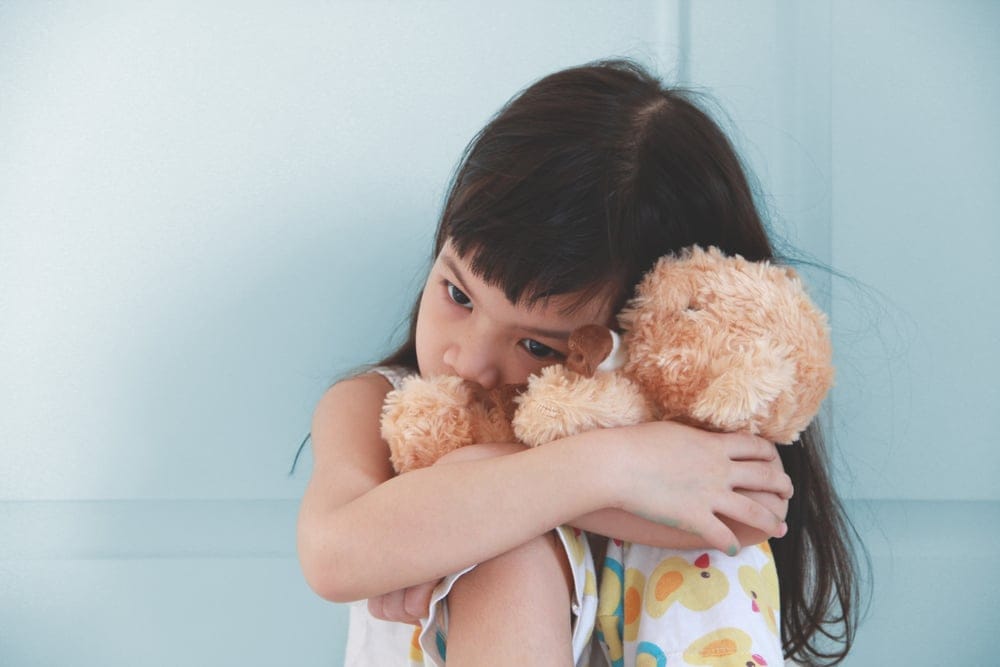As a parent, you do the best you can to ensure your child is loved and cared for. However, there are times when, despite your best efforts, they get into a bad place and need much more emotional support (and maybe even professional help) to get them out of it. If you notice any of these signs, your child is clearly in crisis and you need to step in.
1. They’re becoming increasingly isolated.
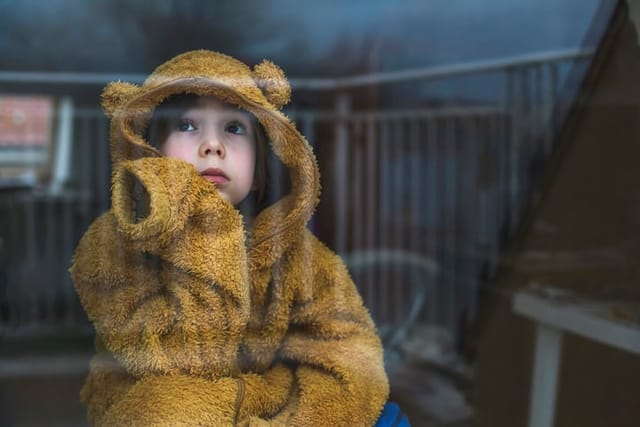
If your child is spending more time alone and withdrawing from family or friends, this could be a sign they’re struggling. They might be dealing with feelings they don’t understand and need more emotional support. While it’s healthy and normal to spend time alone, if they’re purposely avoiding contact with other people, it’s becoming problematic.
2. Their behavior suddenly changes.
Sudden and uncharacteristic changes in behavior or mood can point to emotional distress. If your child is acting out, being unusually aggressive, or showing other behavioral shifts, they may need additional support. There’s usually a reason behind this extreme and seemingly inexplicable shift, so it’s important to get to the bottom of it.
3. Their academic performance has gone downhill.

A sudden or gradual drop in their grades at school or lack of interest in schoolwork can be a sign of emotional distress. They might be finding it hard to concentrate or cope with academic pressure. As a result, they stop working to the best of their ability and may even become disruptive in the classroom as a cry for help.
4. Their sleeping or eating habits are different lately.

If your child’s sleep or eating habits have changed dramatically, it could be a sign of trouble. They may be sleeping too much or too little, or eating more or less than usual. This is usually a direct result of internal distress that they may be scared or simply unable to vocalize properly. Talk to them to try and get to the bottom of it.
5. They’re extremely worried or fearful all the time.

If your child is constantly worried or fearful and these feelings are interfering with their everyday life, it’s a sign that they need more emotional support. They may be dealing with anxiety that requires professional help. Or, they may have experienced/be experiencing some form of trauma you don’t know about but need to.
6. They regularly complain that they don’t feel well.

Regular complaints about physical symptoms like stomachaches or headaches, especially in the absence of a medical issue, can be a sign of emotional distress. They might be expressing emotional pain through physical symptoms. They’re not simply acting out or trying to get out of having to go to school — it’s about more than that.
7. They exhibit regressive behavior.

If your child starts to exhibit behaviors that they had outgrown, like bedwetting or thumb-sucking, it can be a sign that they are feeling emotionally overwhelmed and are resorting to comfort behaviors. While self-soothing in this way is a natural response to what they’re experiencing, resolving the core issue is the only way to get them back on track.
8. They’re no longer interested in things they used to enjoy.

If your child is no longer interested in hobbies and pastimes they used to have fun with, it could be a sign of emotional distress. This lack of interest can be a symptom of depression or anxiety. Figuring out why they’ve suddenly disengaged with the things that used to make them happy is incredibly important.
9. They’re extremely sensitive to criticism or failure.
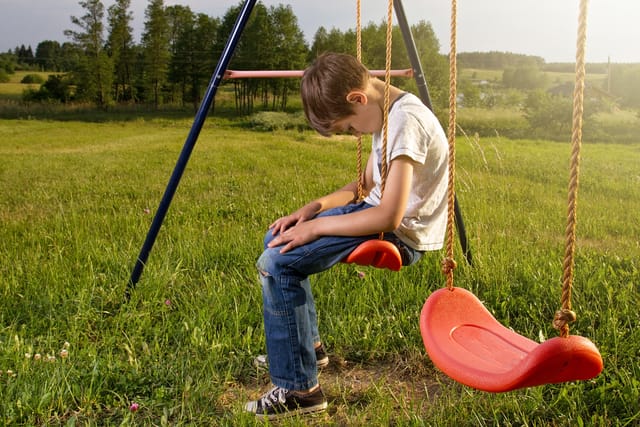
If your child suddenly can’t take constructive criticism or reacts extremely negatively to failure, it could indicate low self-esteem or stress. They may need more emotional support to build resilience. It’s also important to make it clear that negative feedback or making mistakes is not a reflection of their self-worth or abilities.
10. They’ve started talking about death or suicide.
Any talk about death or suicide is a serious warning sign and requires immediate attention. Even if your child mentions these subjects casually or infrequently, it’s crucial to seek help from a mental health professional immediately. The Substance Abuse and Mental Health Services Administration (SAMHSA) Treatment Referral Helpline can be reached at 1-800-662-HELP (4357). They’ll be able to refer to you people in your area that can help.
11. They have severe mood swings or are extremely irritable.

If your child is showing unusual irritability, mood swings, or seems emotionally unstable, this could be a signal of emotional crisis. While mood changes can be part of normal development, excessive shifts could indicate a need for additional support. Determine when this first began and if it ties to any specific event in their lives to see if you can find a connection.
12. They’re experiencing difficulty in their relationships.

If your child is having trouble forming or maintaining relationships with their peers, it might indicate emotional struggles. Social difficulties can be a sign of various issues, from anxiety to developmental disorders, and additional emotional support can be beneficial.
13. They’re exhibiting self-harm behaviors.
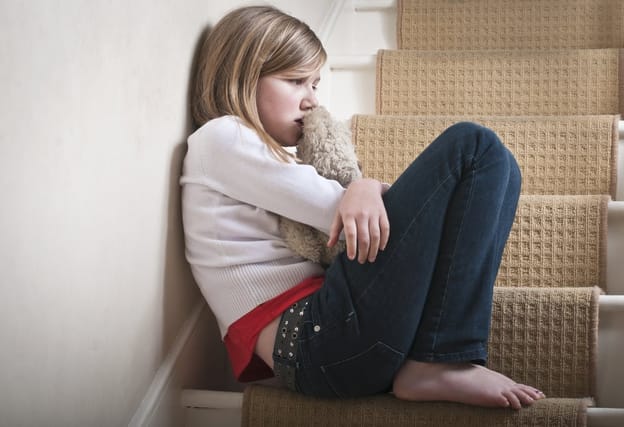
Any evidence of self-harming behaviors is a serious red flag and requires immediate attention. This could include behaviors like cutting, burning, or scratching themselves. Do not delay on seeking help if you notice any indication that this may be happening, as these issues will only be exacerbated the longer they’re left.
14. They have extreme separation anxiety.
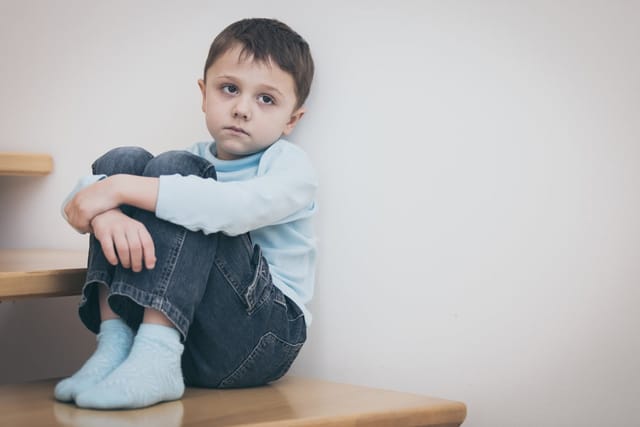
If your child exhibits an excessive fear of being separated from their parents or caregivers, this could be a sign they’re dealing with separation anxiety. This can be particularly prevalent during transitions, like starting a new school.
15. They’re always seeking reassurance.

If your child is constantly seeking reassurance or validation, it might be a sign they are struggling with self-esteem or anxiety issues. They may need additional emotional support to help build their confidence and self-worth.
16. They seem unable to handle everyday stressors.

Children who are unable to cope with everyday stressors, such as minor changes in routine or simple tasks, might be in need of more emotional support. This could be an indication of anxiety or other emotional difficulties.
Enjoy this piece? Give it a like and follow Bolde on MSN for more!
